Q: What exactly is a fragrance oil made out of? I went to buy some today and noticed there was no ingredients listed.
A: Fragrance Oils do not have full ingredient disclosure; they fall under ‘Trade Secret’ status with the FDA and so simply putting “Fragrance” on an ingredient list will suffice.
There are over 3500 materials (aroma chemicals, essential oils and essential oil components) that are approved for use in fragrance oils. Fragrance oils are not policed by the FDA; rather, they are a self-regulated body. Each individual ingredient is tested for things such as irritation, solvency, absorption, to physical characteristics like flash point, specific gravity, and flammability as well as more serious things, such as carcinogenic indicators etc… Once an ingredient is fully tested, the results are published in a peer-reviewed journal. A group called ‘RIFM’ performs all the tests (RIFM stands for Research Institute for Fragrance Materials).
The International Fragrance Association (IFRA) is an international organization that represents fragrance manufacturers. IFRA takes the data and reports from RIFM, evaluates it and publishes guidelines for usage. IFRA will make recommendations for which raw materials are safe to use in fragrance oils; often, what is safe for potpourri will not be safe for the skin. Your supplier should follow IFRA’s guidelines and use only RIFM approved materials in their fragrance oils. Of course, Bramble Berry follows IFRA’s guidelines and uses only RIFM approved materials in our fragrance oils. =)
Curious to learn more about safety, sustainability and the technical details behind fragrance oils? Chemist Stephen Herman has a great article that he wrote for Perfumer & Flavorist that you can read here.
Curious to learn more about safety, sustainability and the technical details behind fragrance oils? Chemist Stephen Herman has a great article that he wrote for Perfumer & Flavorist that you can read here.
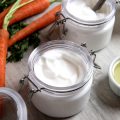
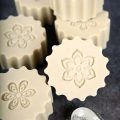
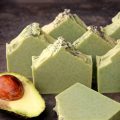
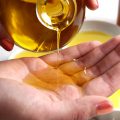
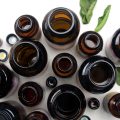
What about some toxins like propylene glycol, petroleum, etc… If those are concerns is it better just to stay away from fragrance oils completely?? I love your Energy fragrance oil and so do my clients but now I am getting a lot of questions about toxic ingredients…
While Propylene Glycol and Petroleum are chemicals, they are not toxic. Propylene Glycol is used in all sorts of things including pharmaceuticals while petroleum products are in almost every aspect of our daily lives.
When addressing these concerns with customers I always point to the frequent and rigorous testing that fragrance oils go through. It’s also important to keep in mind that essential oils are chemicals too – they are just naturally occuring chemicals.
That said I would definitely offer a natural alternative that uses only essential oils in addition to my regular fragranced products. Maybe try blending Tangerine and Grapefruit for a similar scent to Energy.
The thing that made me think it must include essential oils not listed, was the listing of ingredients like Limonene, Citral, Linalool and Geraniol, which I know occur naturally in essential oils and can be found in products containing them. Everything else, I think I can figure out!
Also… is part of the upshot of this, that I too, can make a blend of essential oils and label it “fragrance”? So I can make some nice smelling soapy things… maybe even perfumes at some stage, which are harder to nick the recipe for?
Hm, must be a lip safe fragrance then. But they are using a synthetic to get
the fragrance/flavor then so it will be virtually impossible to get a full
ingredients list from it.
Thanks Soap Queen. It lists ‘fragrance’ not ‘flavour’. It smells to me like shea butter! Just trying to work out what essential oils might accentuate the smell of shea butter. Will keep sniffing things till I work it out!
If it’s called a ‘Fragrance Oil’ you can assume that there is a component in
there that is synthetic, or an aroma chemical. Definitely stick with
Essential Oils to be on the safe side. I’m sorry about your chemical
sensitivity; that must make opening fashion magazines painful for you!
There is not a way to figure out the individual components in a lip balm.
Your best bet is to find the same new shea butter lip balm and work with
your nose. If they’ve listed all the ingredients, that will make it easier
but if they’ve listed ‘flavor’ that could be any number of around 300
components (lip products have stricter regulations than body products which
makes sense since you ‘eat’ your lip balm).
Is there any way to work out what essential oils have been used in a fragrance oil? My flatmate wants me to make some lip balm like the Body Shop Shea Butter one. (Not sure if Body Shop is just a UK store). I know there are essential oils in there, as ingredients are listed, which are the byproducts of EOs. It smells like Shea Butter (from the remnants of the pot). I’d like to get it right for her. Any idea what might enhance the smell of Shea Butter?!
Hi Anne-Marie, Two years ago I became very sick and developed chemical sensitivity. I had to get rid of all my candles. :o( I would like to start making my own with natural materials. Is there a way to find out which fragrances are made with the aroma chemicals and which ones are made with essential oils? Or am I safer just sticking to essential oils? Thanks!
Thank you for the information Anne-Marie! 🙂
Yay! Thanks for taking the time to yet one more time answer a question that has been on my mind for months!
Have a wonderful Thanksgiving with your dear family!
Thanks Beth! =)
Ah, always so sweet Ms. Kelly.
No, I’m not saying that aromachemicals are always suspended in DPG. I’m saying unscrupulous vendors will sometimes extend their fragrance oils with DPG. =) Or jojoba oil. Or mineral oil. Or Fractionated Coconut Oil. Or IPM. Or whatever they think they can get away with. Bramble Berry doesn’t do anything like that (nor have we nor will we ever). You get straight aromachemicals, essential oil parts and essential oils with our oils. Sometimes, with like the case of our Amber fragrance oil which has a ton of resin in it, there will be a skin safe, fragrance approved carrier or solvent to try and get the Amber to actually dissolve or mix in but those cases are few and far in between.
I used to have a library card catalog that I cataloged all of our samples. We had to get rid of it when we outgrew it but it was similar to what you’re doing with your little drawers. Good job for being organized!
Fragrance Oils and colorants are the most common products to be irritated by if you have allergies or are prone to allergies. All fragrance oil components are tested for allergic reactions. If they fall within a certain range, they are approved. It’s like nuts – a certain small amount of the population is allergic but they still go into a lot of things because the risk factor is considered small. If you have allergens and you know what they are, you can always request an EU Allergen report for any fragrance oil that Bramble Berry carries to see if any of our fragrances contain one of the (only) 26 ingredients that the EU has determined is an allergen. The EU determined some pretty silly allergens though – there’s a great article about it here: http://www.naha.org/articles/a…
Since some fragrance oils may contain essential oils or other chemicals for that matter, should allergies be considered a possibility?
If you ONLY knew…or if my house insurance agent only knew… which was a light concerning thought that I had upon awaking this morning. My whole kitchen has an average flash point of about 114 degrees.
Yes, I always go to the Queen with my tough questions, because I know she will answer me 1) honestly 2) fairly and 3) scientifically. Inquiring minds want to know….. discriminating scientific minds, that is.
So are you saying that the aroma chemicals are actually suspended in a diluent and is that diluent DPG? This would be important information for us to know. Are there any other diluents other than DPG that are a little more natural?
Last count…and THIS WILL make you laugh, for sure….I have a whole pantry stuffed with 1 oz samples and those subdivided by type into little plastic drawers. Probably around 200 or so. Most I have cast aside for my fragrance offering for products, but it had gotten entirely out of hand, which is why I must condense, consolidate and define a limited amount of fragrances to offer next year….
I will always remain very patriotically outspoken in my love for BrambleBerry fragrances. Not only do I love the fragrance descriptions, but I love the amber bottles, and the selection is superior and the quality unsurpassed. I am so glad that you take the time required to be discriminating and selective with the fragrances, but also on trend too! This gives me confidence that I am offering something that someone else who is in the know thought was important enough to test and inquire and take the risk to offer themselves in order to pass on to me………..
Affectionately signed,
A devoted BB fragrance curator and conservator….. =)
An excellent and informative post. Thank you!
Ah Kelly Kelly, always the trouble maker =)
Yes, there are vendors out there that will dilute fragrance oils to stretch them for whatever reason. Bramble Berry doesn’t sell diluted fragrance oils so you’re just getting the mixture of aromachemicals, essential oil components and essential oils mixed up. That’s why you have to dilute by a minimum of 75% to put them on your skin. =)
Yes, I am certain some suppliers dilute fragrance oils after they receive them. However, it’s not really something you can ‘get’ anyone on. So long as they’re diluting with a skin safe diluent (like DPG or something simple like that), they’re just mixing in a fragrance additive.
That’s why it’s so important that you buy small amounts and test, test, test whenever you’re checking out a new vendor. And, feel free to ask them if their fragrances comply with the latest IFRA 45 regulations on skin safety and usage rates. You’ll start to see little ‘Reformulated for IFRA 45’ notes on some of our fragrances because that’s the latest version of the rules and regs that just came out last month and so we’re already working on compliance (though we and all other vendors legally have 2 years).
(laughing) You make me laugh; always with the sweet comments or tough questions. ‘Night.
ok. so since you have broached the subject now……are the aroma chemicals suspended in a carrier oil? is that what makes the fragrance “oily”? Is there any way for us to purchase pure aroma chemicals that are not suspended in oil? Or are those ingredients proprietary to the industry alone. It’s just that i have purchased some oils from some suppliers (not BB!) and I swear they are diluted, adulterated, and in the case of this one company which I will not mention, I swear that almost every oil they distribute smells the same.
Which leads me to the next and very dicey question…..do you think that some suppliers actually dilute their fragrance oils? Who actually oversees their fair trade practices? just sayin’……